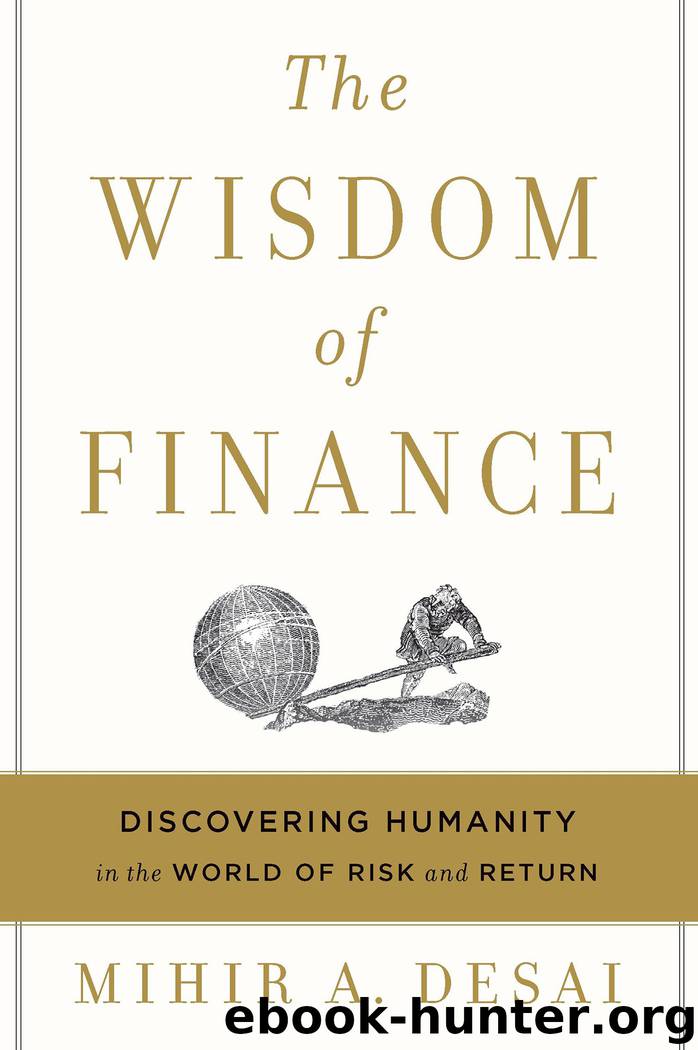The Wisdom of Finance by Mihir Desai

Author:Mihir Desai
Language: eng
Format: epub
Publisher: Houghton Mifflin Harcourt
So, what went wrong in the marriage of AOL and Time Warner? Just about everything—and, in fact, the mistakes read like a playbook for disaster drawn from the finance folklore of what makes mergers succeed or fail. With only minimal revision, the mistakes of AOL –Time Warner might just as easily be a playbook for disaster drawn from matrimonial folklore of what makes marriages succeed or fail—just substitute people for the companies and see if works for you.
1. Due diligence is critical: Time Warner never did appropriate due diligence—the thorough investigation and vetting of a target company’s financials and operations—and subsequently found fairly significant accounting fraud. That fraud was the result of an aggressive sales culture at AOL that was fostered as the blistering growth rates of the mid-1990s began to cool. When companies put themselves up for sale, they routinely flatter their financial statements. Only due diligence can serve to avoid extremely costly mistakes—Hewlett Packard spent $11 billion on Autonomy only to find it had bought something closer to $1 billion in value.
2. Filling a hole in your organization is not a merger strategy: Levin had struggled with adapting to a digital media age and thought that, in one fell swoop, he could compensate for being behind fast-paced technological change. Efforts to build that capability internally were always short-circuited and not given the resources to succeed. But Levin was willing to bet the company on the AOL merger so that he could fill the gaping hole in his organization.
3. Racing against the clock leads to bad decision making: Levin felt pressure to do something, as his tenure at Time Warner was coming to an end. Case knew that it was only a matter of time until the sky-high valuations of internet companies would come crashing down. They proceeded with little outside advice (within their companies or from advisors) and on impulse decided to merge their companies.
4. Synergies are always overstated . . . : The pervasive buzzword in mergers is “synergies”—the increases in value that will result from an acquirer’s ability to grow revenue or cut costs when the entities are combined. The 1 + 1 = 3 logic is tempting—we will quickly change the other organization to help realize the great value that can emerge from the union. For AOL and Time Warner, it was the promise of cross-selling opportunities and content sharing. Those opportunities were never realized for cultural and marketing reasons. In many ways, AOL and Time Warner effectively remained separate entities, never growing together in any meaningful sense.
The illusory promise of quickly changing a target to realize synergies is usually accompanied by flowery language and sentiments that obscure the underlying challenges. Dick Parsons, who became CEO of the combined entity, provides a vivid example. When asked about the merger, he said:
Download
This site does not store any files on its server. We only index and link to content provided by other sites. Please contact the content providers to delete copyright contents if any and email us, we'll remove relevant links or contents immediately.
The Black Swan by Nassim Nicholas Taleb(6190)
Bad Blood by John Carreyrou(5768)
Pioneering Portfolio Management by David F. Swensen(5605)
Millionaire: The Philanderer, Gambler, and Duelist Who Invented Modern Finance by Janet Gleeson(3568)
Skin in the Game by Nassim Nicholas Taleb(3459)
The Money Culture by Michael Lewis(3284)
Skin in the Game: Hidden Asymmetries in Daily Life by Nassim Nicholas Taleb(3264)
Bullshit Jobs by David Graeber(3179)
The Wisdom of Finance by Mihir Desai(3077)
Blockchain Basics by Daniel Drescher(2890)
Liar's Poker by Michael Lewis(2810)
The Intelligent Investor by Benjamin Graham Jason Zweig(2596)
Hands-On Machine Learning for Algorithmic Trading by Stefan Jansen(2516)
Mastering Bitcoin: Programming the Open Blockchain by Andreas M. Antonopoulos(2509)
Investing For Dummies by Eric Tyson(2470)
Fooled by Randomness: The Hidden Role of Chance in Life and in the Markets by Nassim Nicholas Taleb(2412)
The Power of Broke by Daymond John(2376)
Zero Hour by Harry S. Dent Jr. & Andrew Pancholi(2246)
Market Wizards by Jack D. Schwager(2163)
